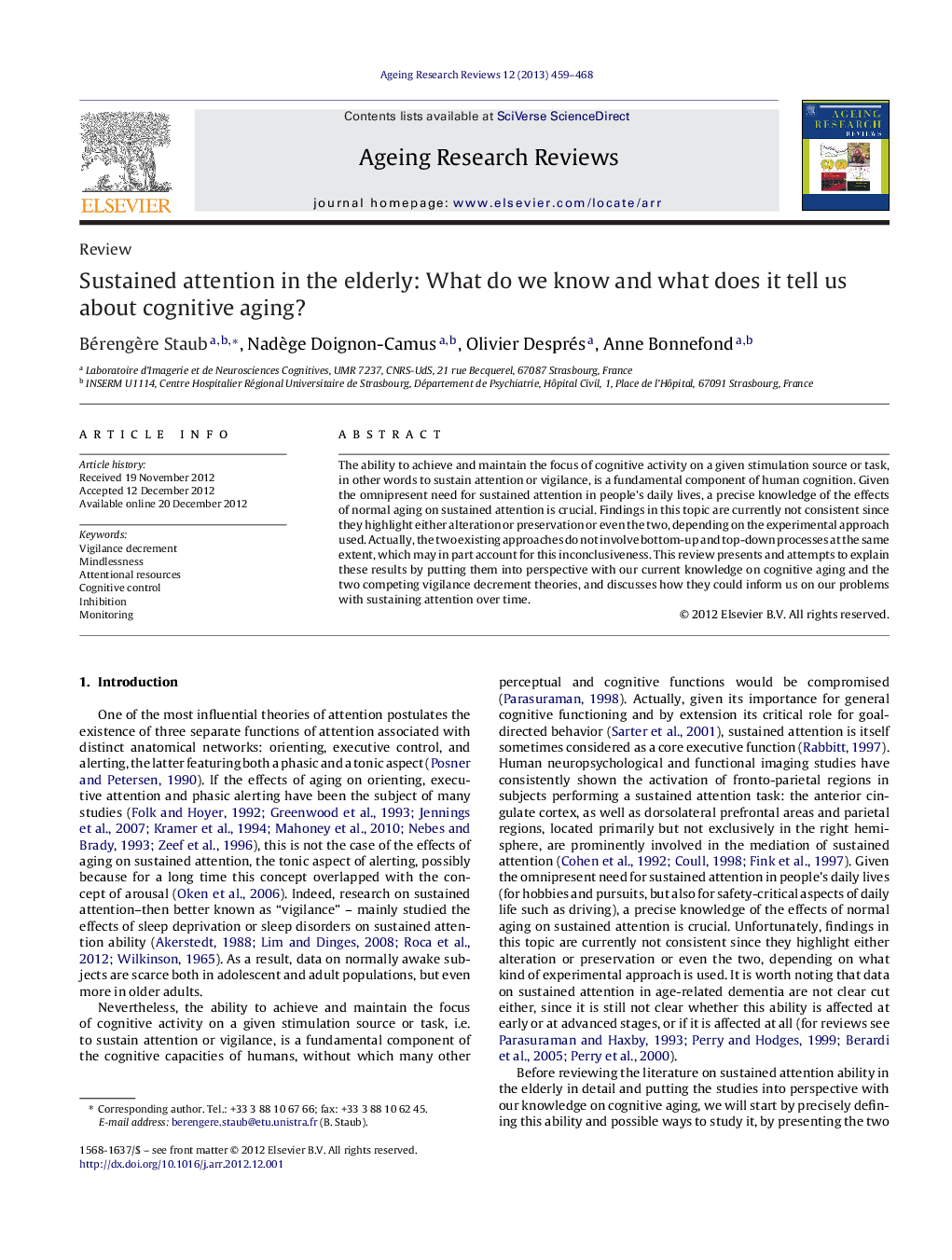| Article ID | Journal | Published Year | Pages | File Type |
|---|---|---|---|---|
| 1902336 | Ageing Research Reviews | 2013 | 10 Pages |
The ability to achieve and maintain the focus of cognitive activity on a given stimulation source or task, in other words to sustain attention or vigilance, is a fundamental component of human cognition. Given the omnipresent need for sustained attention in people's daily lives, a precise knowledge of the effects of normal aging on sustained attention is crucial. Findings in this topic are currently not consistent since they highlight either alteration or preservation or even the two, depending on the experimental approach used. Actually, the two existing approaches do not involve bottom-up and top-down processes at the same extent, which may in part account for this inconclusiveness. This review presents and attempts to explain these results by putting them into perspective with our current knowledge on cognitive aging and the two competing vigilance decrement theories, and discusses how they could inform us on our problems with sustaining attention over time.
► The ability to sustain attention is a fundamental component of human cognition. ► Two major experimental approaches allow us to study this attentional process. ► Findings on the effect of aging on sustained attention are not consistent. ► Data on cognitive aging can help explaining those heterogeneous results. ► We also confront these results to the two competing vigilance decrement theories.
